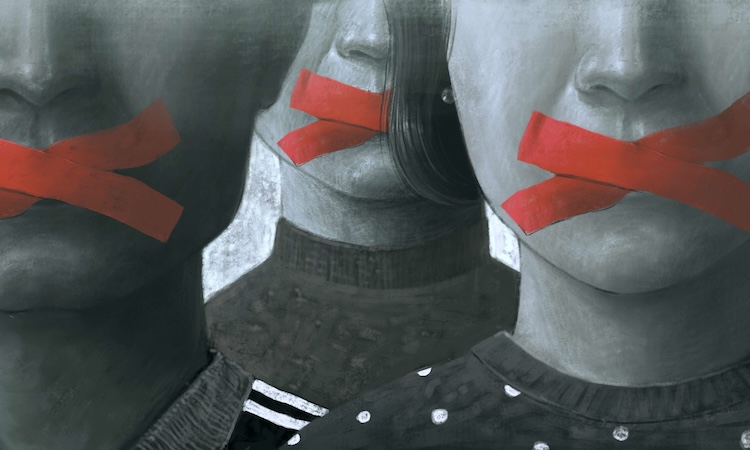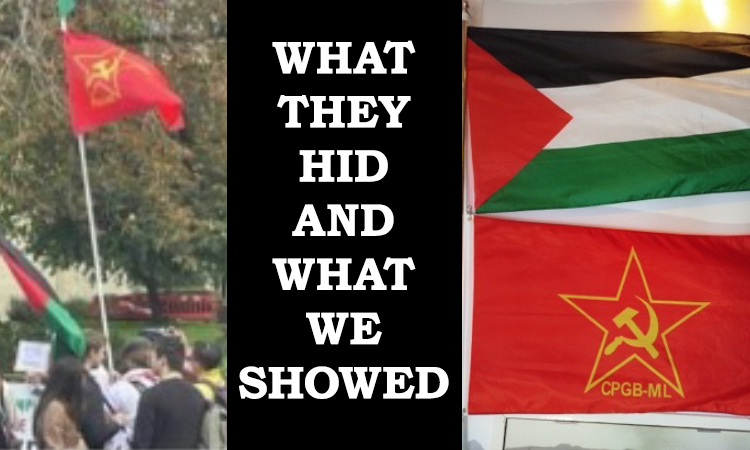After a two-year break, the International Journalism festival returned to Perugia (Italy) this April. Journalists from all over the world discussed pressing issues facing the news industry such as the rise of hybrid newsrooms, reader revenue models, the coverage of the climate crisis, news innovation and the media side of the war in Ukraine.
A little-publicised event at the festival concerned journalist Julian Assange, and took place on 9 April 2022 at the Auditorium San Francesco al Prato. We reproduce with thanks the following report from that meeting.
This article is translated and reproduced from Antimafia Duemila, with thanks.
*****
Freedom of the press one step away from being buried
“If British justice issues an extradition order, if they manage to extradite him, he will disappear, he will be put in a maximum security prison and we will no longer be able to review him. Just for publishing what we journalists have published, for exposing crimes of war, horrible crimes.” These are the words of the journalist Stefania Maurizi, who spoke in Perugia at the International Journalism festival.
A particularly rich edition this year, capable of bringing together the protagonists of the world of information and culture from all over the world. Among the various meetings and debates, an episode was also held on “Assange and Wikileaks: freedom of information on trial”, aimed at bringing to the awareness of public opinion the importance of press freedom and the primary role that information plays in being able to understand the reality in which we live.
Among the speakers were, in addition to Maurizi, a journalist for Il Fatto Quotidiano who has dealt with the Assange case for years, journalist and spokesperson for Wikileaks Joseph Farrell, and Stella Assange (formerly Moris), lawyer and wife of the Australian journalist.
This was an important meeting when we take into account the fact that the extradition of Julian Assange, currently held in the Belmarsh maximum security prison and facing 175 years in prison for revealing the true American face behind the war crimes, is getting closer and closer.
Joseph Farrell, defining the Wikileaks files as “the greatest historical-geopolitical source”, and wanting to bring attention to the level of media manipulation we are subjected to every day, told of when a journalist who had confessed to him that, after spending 15 years reading ten newspapers a day, he had never found the truths about his country reported in the cables. This brought home to him how certain information crucial for the understanding of international relations was never disseminated.
The British supreme court rejected Assange’s appeal against extradition despite Judge Valeria Baraitser, in first instance, refusing his transfer owing to his serious physical and psychological health conditions which, according to an expert opinion, would lead to the suicide of the Australian activist if he were handed over to the USA.
The drastic conditions in which Julian Assange finds himself, the treatment and oppression he is undergoing, were also testified to by Stella Assange:
“His personal situation was aggravated when he was arrested because he spent seven years indoors, in a small room. He is in a prison surrounded by very dangerous people. He had a mini-stroke in October and this is obviously a sign of his deteriorating health. Julian has suffered from clinical depression all his life and we are very worried about him.”
Wikileaks ambassador Joseph Farrell said that Assange is risking his life just for having shown, through confidential files published on Wikileaks, the truth about the horror that western ‘democracies’ were perpetrating around the world.
Since then, the American empire of lies has literally embarked on a campaign of persecution against Assange, leading him to take refuge for seven years in the Ecuadorian embassy in London. Now the British government has been holding him for years alongside the worst criminals in a maximum security prison, despite the absurd allegations of rape against him having fallen by the wayside.
US judicial interventions around the world, in order to imprison a journalist they do not like, cannot be allowed to go unnoticed and under the news radar. The USA wants to indict Assange through the Espionage Act, a 1917 law according to which a journalistic work of gathering and publishing information should be compared to espionage.
But Assange did not work for the United States, which never claimed he was publishing for the benefit of a foreign state, yet the CIA branded Wikileaks a ‘hostile non-governmental intelligence service’ – in other words, an independent news organisation. It depends on your point of view.
As if that weren’t enough, the US establishment is trying to gag investigative journalism with spy laws in an extraterritorial way, blatantly violating the sovereignty and jurisdiction of European countries.
According to Stella Assange, a bilateral treaty between the United Kingdom and the United States is being violated that prohibits extradition for political offences. Since the groundless accusations in this case are of espionage – considered a political offence – the British government must not comply with American requests. Almost two centuries in prison for journalistic activities are about to be assigned and if this becomes a reality, a “new gold standard will be established, for which any journalist around the world can be prosecuted” by invoking the case of Assange.
The level of ferocity of the political attack that we are witnessing, and the number of actors involved, is something unprecedented in history. Stella Assange recalled how the security agencies working in the Ecuadorian embassy received instructions from the CIA to kidnap and assassinate Assange. In addition to placing cameras to spy on the Wikileaks founder, in the embassy the notebooks of the lawyers and the mobile phones of visitors would be photographed – up to the point of trying to extract DNA samples from the nappy of Assange’s baby son.
British justice, however, chose to ‘believe’ the reassurances of the US authorities regarding Assange’s safety, their assertions that there would be no torture or harsh restrictions in maximum security prisons, and their suggestions that the sentence could be reduced to four to six years. It is even more difficult to believe all these claims after a Yahoo News article exposed the fact that, thanks to about 30 testimonies from government officials and Washington intelligence agents, it is now known the CIA intended to kidnap and kill Julian Assange in agreement with members of the US administration.
It will now be up to Priti Patel, the British home secretary, to choose whether to believe the promises of protection made by those who killed children and journalists in Iraq.
Journalist Stefania Maurizi concluded by saying that Assange’s case is one of the worst cases of denial of democratic principles, as a journalist is being prosecuted for publishing information of public interest received from reliable sources.
What is at stake is free information together with the values of truth and justice. We risk seeing Article 21 of the European convention on human rights ditched, and we may soon be unable to find reliable information, leaving us unable to understand what is happening in our country and throughout the world.
We cannot remain indifferent to this unprecedented attack on our fundamental rights. We must strongly oppose these injustices, demanding the withdrawal of all charges against Julian Assange, who has done nothing but do his journalistic work.
This is yet another attack on freedom of the press, which is increasingly deeply affected. If informing the community is considered a crime, for which one can be tried, jailed and sentenced to death, in the silence of the big mainstream media or those who should be the watchdogs of information, here it is not only the freedom of information or expression, but the whole sense of democracy that is on trial.
And this we cannot allow.















